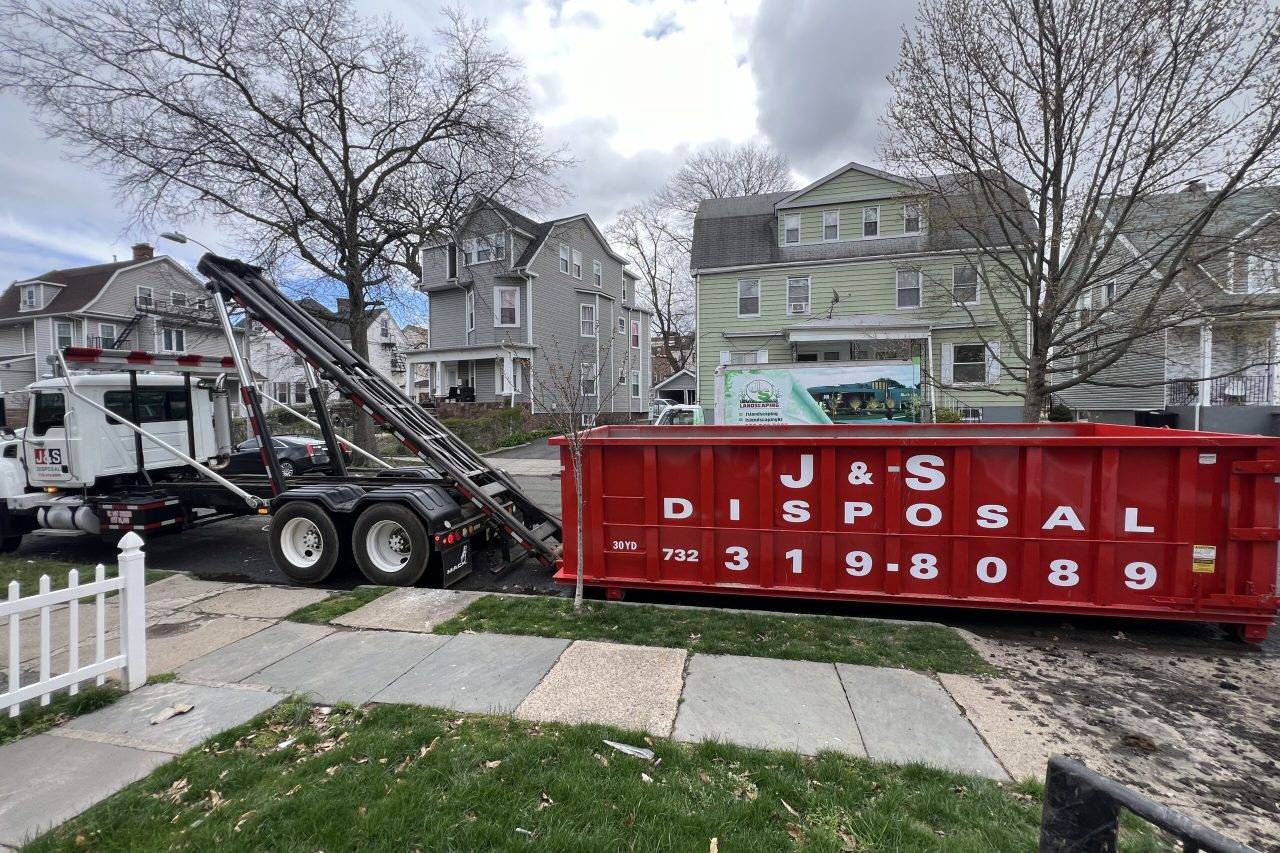Dumpster for Rent: A Comprehensive Guide to Choosing the Right Dumpster Rental

When tackling large projects such as home renovations, yard cleanups, or construction work, the need for effective waste management quickly becomes apparent. A dumpster for rent can be the ideal solution, allowing you to dispose of waste conveniently and efficiently. Renting a dumpster is not only cost-effective but also saves time and labor by providing a single location for debris and unwanted materials. This guide covers everything you need to know about renting a dumpster, including types, costs, and tips for selecting the right one for your project.
Why Rent a Dumpster?
Renting a dumpster is essential for managing and disposing of waste from large-scale projects. Here are some of the key benefits of choosing a dumpster rental:
1. Convenience
Having a rented dumpster on-site means you don’t have to make multiple trips to the landfill. Instead, you can simply toss waste into the dumpster, which will be collected and disposed of by the rental company.
2. Safety and Cleanliness
By centralizing waste disposal, you reduce the risk of accidents on-site. Loose debris, sharp objects, and construction materials can all pose hazards; a dumpster keeps them contained, creating a safer work environment.
3. Cost-Effective Solution
When considering the cost of multiple trips to the landfill, fuel, and time, renting a dumpster can actually be more economical. Most rental companies offer flexible pricing based on the size and duration of the rental, making it affordable for both small and large projects.
4. Environmental Responsibility
Professional dumpster rental companies dispose of waste responsibly, often recycling where possible and adhering to local environmental regulations. This ensures that waste is managed in an eco-friendly manner.
Types of Dumpsters Available for Rent
Different projects require different types of dumpsters. Here’s an overview of the most common types available for rent:
1. Roll-Off Dumpsters
Roll-off dumpsters are the most popular type for residential and commercial projects. They are delivered to your site on a truck, “rolled off,” and set in place for easy access. Roll-off dumpsters come in various sizes, making them suitable for projects of all scales.
2. Front-Load Dumpsters
Front-load dumpsters are typically used by businesses that need a permanent waste disposal solution. They are smaller than roll-off dumpsters and are designed for regular waste collection. However, they may also be rented on a short-term basis for smaller projects.
3. Construction Dumpsters
Construction dumpsters are specifically designed to handle the heavy waste generated from construction and demolition projects. They are generally larger and more durable, making them perfect for projects that involve materials like concrete, bricks, or asphalt.
4. Yard Waste Dumpsters
Yard waste dumpsters are ideal for landscaping projects or seasonal yard cleanups. These dumpsters are specifically intended for organic waste, such as grass clippings, leaves, tree branches, and small amounts of soil.
5. Junk Removal Dumpsters
Junk removal dumpsters are versatile and are used for clearing out items like furniture, household goods, and general clutter. These dumpsters are popular for spring cleaning projects, garage cleanouts, and moves.
Choosing the Right Dumpster Size
Selecting the right size is essential to avoid overspending or running out of space. Dumpsters come in a range of sizes, measured in cubic yards. Here’s a quick guide to common dumpster sizes and their best uses:
1. 10-Yard Dumpster
- Capacity: Approximately 10 cubic yards of waste
- Best For: Small home cleanouts, minor landscaping projects, and small remodeling jobs
- Description: This compact size is ideal for light debris or small projects where space is limited.
2. 20-Yard Dumpster
- Capacity: Approximately 20 cubic yards of waste
- Best For: Medium-sized renovations, roofing projects, and larger yard cleanups
- Description: The 20-yard dumpster is a popular choice for home renovation projects, offering enough space without taking up too much room on your property.
3. 30-Yard Dumpster
- Capacity: Approximately 30 cubic yards of waste
- Best For: Larger home remodeling projects, construction sites, and community cleanups
- Description: This dumpster size is suitable for larger-scale projects, handling bulky materials and high volumes of waste.
4. 40-Yard Dumpster
- Capacity: Approximately 40 cubic yards of waste
- Best For: Major construction or demolition projects, large cleanouts, and commercial use
- Description: The 40-yard dumpster is the largest option and is ideal for projects that generate a significant amount of debris.
Factors to Consider When Renting a Dumpster
Renting a dumpster is a straightforward process, but there are a few important factors to consider to ensure a smooth experience:
1. Project Duration
Determine how long you’ll need the dumpster, as rental companies typically offer daily, weekly, or monthly rates. Be realistic about your timeline to avoid late fees or the inconvenience of needing a dumpster for longer than anticipated.
2. Waste Type
Not all waste is suitable for all dumpsters. Certain items, such as hazardous materials, electronics, and chemicals, are restricted and require special disposal. Confirm with the rental company about what can and cannot be placed in the dumpster.
3. Access and Placement
Choose a spot on your property where the dumpster can be easily accessed and is clear of overhead obstructions like power lines. Consider placing it close to your project site to minimize trips back and forth.
4. Local Regulations and Permits
Some municipalities require permits for placing dumpsters on public property or sidewalks. Check with your local government to understand any permit requirements and avoid potential fines.
5. Rental Cost and Fees
Request a detailed breakdown of all costs, including delivery, pickup, disposal, and any additional fees. Some companies charge extra for overweight loads or specific types of waste, so it’s best to know what’s included in the rental price.
Average Cost of Renting a Dumpster
The cost of renting a dumpster varies depending on factors such as location, dumpster size, rental duration, and waste type. Here is a general estimate of average costs:
- 10-Yard Dumpster: $200 – $400
- 20-Yard Dumpster: $300 – $500
- 30-Yard Dumpster: $400 – $600
- 40-Yard Dumpster: $500 – $700
Remember, prices can vary, so it’s a good idea to get quotes from multiple rental companies to compare rates. Some companies offer flat rates, while others charge based on weight or the type of waste disposed of.
How to Rent a Dumpster: Step-by-Step Guide
If you’re ready to rent a dumpster, follow these simple steps to get started:
1. Assess Your Needs
Begin by evaluating the size of your project, the type of waste generated, and the space available on your property. This will help you choose the appropriate dumpster size and rental period.
2. Research Dumpster Rental Companies
Look for reputable local rental companies, checking their online reviews and testimonials. Ensure the company has a good reputation for timely delivery, clear pricing, and customer service.
3. Request Quotes
Contact multiple companies to request quotes, ensuring you get a detailed cost breakdown. Ask about any additional fees, including overweight charges, extended rental fees, or specific disposal costs.
4. Book Your Dumpster
Once you’ve chosen a company, confirm the rental details and book your dumpster. Provide information on where you’d like the dumpster placed and any preferred delivery and pickup dates.
5. Prepare for Delivery
Clear the area where the dumpster will be placed, ensuring it’s free of obstacles. If required, have any necessary permits on hand.
6. Load the Dumpster Responsibly
As you fill the dumpster, keep in mind any weight restrictions or prohibited items. Distribute the waste evenly, and avoid overloading to prevent additional fees.
7. Schedule Pickup
Once your project is complete, contact the rental company to schedule a pickup. Make sure the dumpster is easily accessible for a quick and efficient removal.
Tips for Maximizing Your Dumpster Rental Experience
- Plan Ahead: Book your dumpster in advance to ensure availability, especially during peak times.
- Pack Smart: Break down large items and place heavy materials at the bottom to maximize space.
- Separate Materials: If your project involves different waste types, consider separating recyclable items to reduce weight and avoid additional disposal fees.
- Use for Multiple Purposes: If you’re paying for a rental, consider tackling multiple projects simultaneously to make the most of the dumpster.
Conclusion
Renting a dumpster is an efficient solution for managing waste on projects of all sizes. By understanding the different types of dumpsters, choosing the appropriate size, and knowing what to look for in a rental company, you can make the process smooth, safe, and cost-effective. Whether you’re handling a small home cleanup or a large construction project, a rented dumpster offers convenience, safety, and environmental benefits, allowing you to complete your project with ease.
With careful planning and the right rental partner, a dumpster for rent can simplify your waste disposal needs, making it easier to focus on completing your project.







